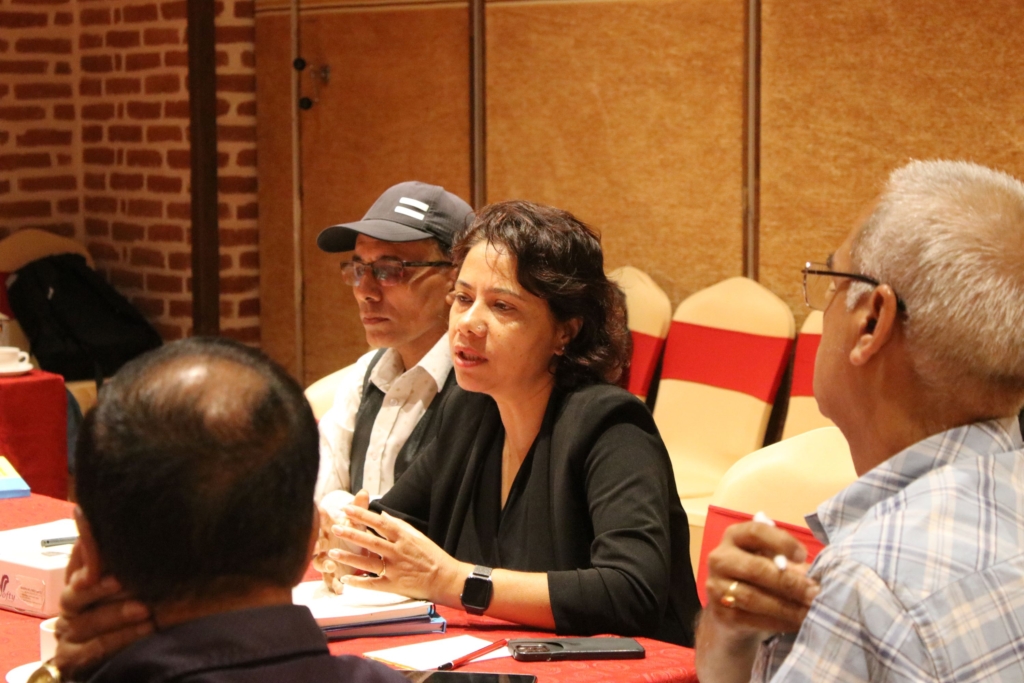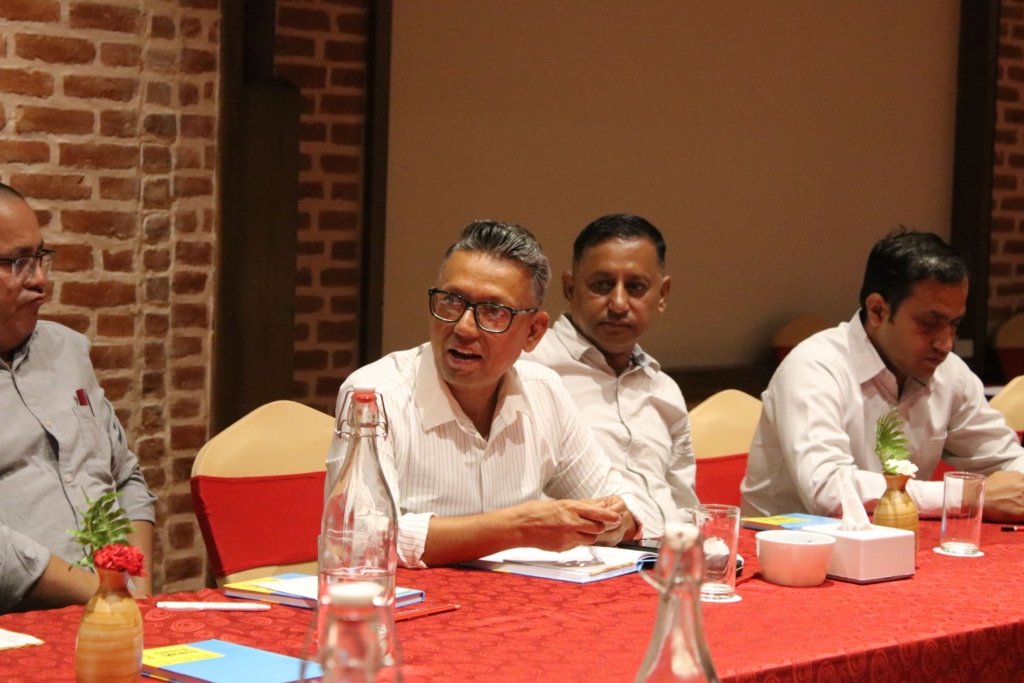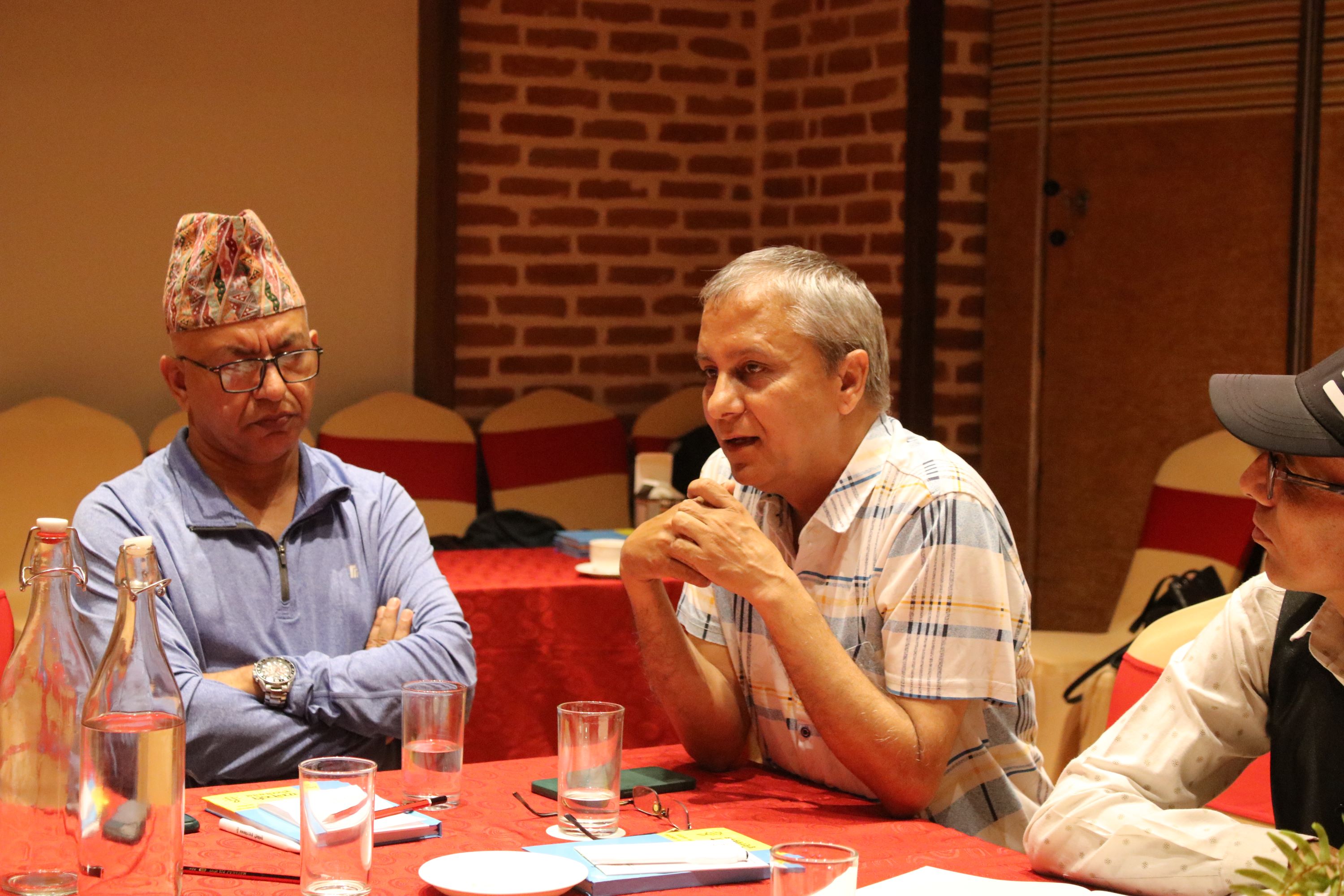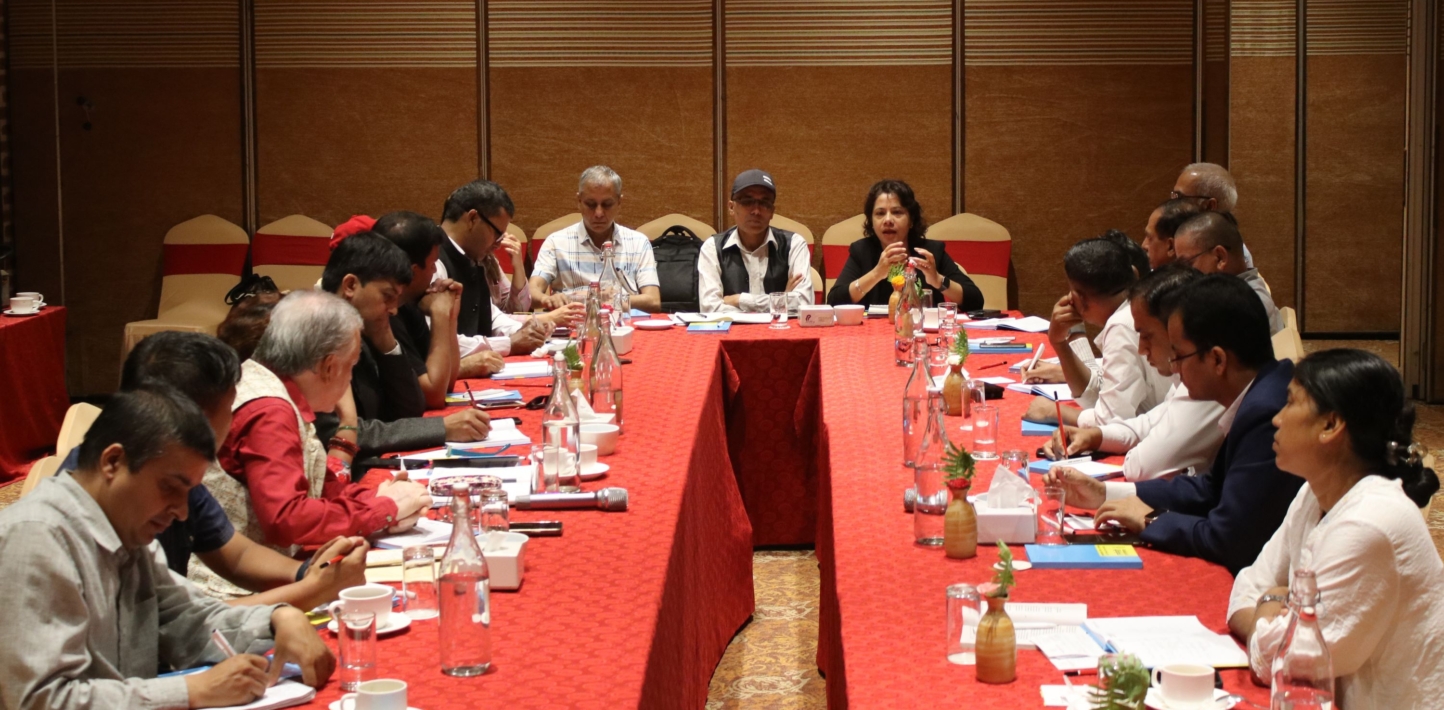On 1 August, a roundtable dialogue was held with senior editors and editors-in-chief of leading national newspapers and online media houses regarding the recent developments around the amendments to the Enforced Disappearances Enquiry, Truth and Reconciliation Commission Act. The discussion was held at Basera Boutique Hotel, Kathmandu.
The discussion commenced with Dr. Mandira Sharma, Senior International Legal Advisor for the International Commission of Jurists, providing a brief overview of the issues that remain to be addressed in the amendment bill. She explained how the ongoing proposals violate various principles of human rights law, international humanitarian law and international criminal law, and stressed on the need for a workable law, one that respects international law and standards and is in line with the judgments of the Supreme Court of Nepal.

Following this, Charan Prasai, senior human rights defender and former chairperson of AI Nepal, stated that while it has been a decade since the Act has been introduced, not a single complaint has reached a logical conclusion. However, he stated that the victims and human rights defenders must not lose hope because the voices and struggles of the victims and civil society have had deterrent effects. He pointed out some key problematic points in the Act, such as the illogical and restrictive classification of rape of “armed” and “unarmed” women, wherein women who had taken up arms during the conflict period and had been raped cannot claim for justice. He stressed the need to rectify these errors.
Suman Adhikari, former chairperson of Conflict Victims Common Platform, questioned the attempts made by the key political parties to make agreements on the four key issues stating that they seem to have come from a perpetrator-centric approach rather than a victim-centric approach. He further elaborated on how, throughout the years, the tactics of delaying and denying justice have been employed by political actors.
He also stated that while a few initiatives of various political dispensations have shown some hope, ultimately nothing has materialised, and the political dispensation has lost the trust of victims. He stressed the need to build an environment of trust and to resolve the outstanding issues in line with the bare minimum requirements of human rights laws and standards as laid by the Supreme Court of Nepal and international law.
Sushila Chaudhary, advocate and General Secretary of Conflict Victim National Women Forum, stated while that a few proposals that have been floated regarding the amendment of TJ laws are problematic, some achievements such as the proposed extension of deadline to make complaints regarding conflict related sexual violence must be guarded. Remembering the struggles that were faced by many victims during the phase of collection of complaints, she stressed the need to have a gender-based approach in all actions related to transitional justice.
Adding to what Dr. Mandari Sharma said, senior journalist Tirtha Koirala too stressed the importance of drafting and promulgating a workable legislation. He stated that the transitional justice process should not be taken as a political tool, rather it should be a means to guide society towards non-recurrence of human rights violations in the future.
Ram Kumar Kamat, advocate and contributor to The Himalayan Times, stated that the media has been helping the victim community and human rights defenders’ community in keeping the plight and issues of transitional justice alive and that the media will continue to support them. He further stated that victims and human rights defenders should not be taken aback by public reactions and should continue to firmly put their case in an evidence-based manner.

Guna Raj Luitel, editor-in-chief of Nagarik Daily, expressed sorrow that the movement for a just and logical conclusion to the transitional justice process has lost steam over the years. Kiran Nepal, editor of the Centre for Investigative Journalism Nepal, echoed the concern regarding weakening of the victims’ movement for a just and logical conclusion to the transitional justice process. He shared many limitations of the media that has led to a lack of features and publication of transitional justice related stories. He expressed dismay over the popular narratives that are brewing about the demands of the victims and over the narrow political interests that the policymakers are pursuing. Nevertheless, he expressed hope that if the process does not find a just conclusion, people may be held accountable even after three to four decades after the conflict.
Shiva Gaule, editor-in-chief of Onlinekhabar, explained that today’s newsrooms are filled with a new generation of journalists and most of them do not have a lived experience of the conflict. Therefore, while the new generation of journalists report on facts, they might not necessarily have an emotional connection associated with lived experience. Therefore, he mentioned that news outlets should focus on institutional memory creation and transfer regarding the conflict and the transitional justice process.

Hari Bahadur Thapa, journalist of Baarakhari, stressed on the urgent need to have a list of amendments that would be needed to rectify the recent agreement between the key political parties. He suggested that such a list should be made available to members of Parliament so that they find a way to pass the bill through them. He cautioned that the process may be “fast-tracked” and that meaningful discussion in the parliament regarding the amendments could be muzzled. In such a case, he suggested, alternative strategies such as media can be resorted to.
Kosh Raj Koirala, editor of Republica Daily, iterated that the transitional justice process is taking very long and questioned how long it will still be left entangled. He expressed concern over the apparent weakening of the movement of victims and civil society, and also echoed the limitations of the media and requested the movement to make a list of amendments ready so that the media and the people can compare between what the politicians propose and what the victims want.
Lal Bahadur Airi, the General Manager of Gorkhapatra Sansthan, expressed concerns over the perpetrators having now joined forces for political reasons and the victims’ movement having gotten weak. He also expressed his agreement over the fact that the transitional justice process includes an emotional element. He also shared that people in rural areas have still not made complaints because of coercion and fear at the local level.
Babita Basnet, Founder and Executive Director of Media Advocacy Group, agreed that members of both houses of the parliament should be reached out to register amendments to the transitional justice bills once the amendments are tabled in the parliament.

Anil Bogati of Radio Kantipur stated that the community of human rights defenders have not seen generation shift like in the newsroom and this generation gap has caused a communication gap in relaying conflict related issues. He stressed the need for the victims to have unified demands. Further, he stated that not just the laws, even the nomination of persons to the respective commissions regarding transitional justice should be governed by transparency and integrity.
The program was conducted with the liaison and support of senior journalist Kamala Panthi.


